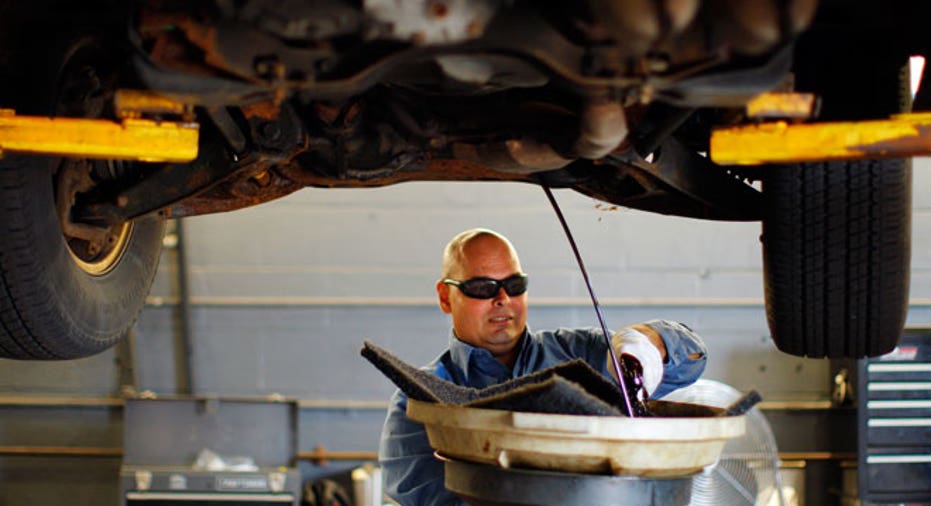Four Costly Car Maintenance Mistakes to Avoid

While the cost of car maintenance may be hard to swallow, postponing regularly scheduled maintenance actually can result in more costly problems in the long run. Postponing maintenance is the No. 1 car maintenance mistake, according to research by CarMD.com, which polled certified master technicians.
Of the top 10 maintenance mistakes in the firm's study, four of them were related directly to regularly scheduled car maintenance and could be avoided. Take a look at these four and what you need to do to prevent them from hurting your wallet.
Not changing the oil on time. Oil changes are part of the regularly scheduled car maintenance intervals outlined in your car owner's manual, but "on time" is relative, depending on the car you drive. The manufacturer may recommend changing the oil at specific intervals, sometimes as high as every 10,000 miles, or when an oil monitoring sensor indicates the oil is dirty. So, the first step in being "on time" is knowing what is recommended for your vehicle. Once you know the recommendations, make a reminder for yourself to schedule an appointment for your oil to be changed promptly.
Not checking tire pressure. Tires naturally lose pressure over time. Tires that are low on air, even those that aren't visibly low, can compromise fuel economy. This increases ownership costs, and the tires will wear faster and need to be replaced sooner. Low tire pressure also impacts steering, suspension and other components, which can result in costly repairs. Saving yourself from expensive repairs or buying new tires too soon can be easily remedied by checking your tire pressure. Create a reminder to check it monthly, following the instructions found in "Keeping your tires in shape" on Bankrate.com.
Not changing the fuel and air filters. Filters are small, inexpensive parts to replace during regularly scheduled services, but when they get clogged, they can create a world of trouble. Dirty air or fuel filters can cause various sensors on a car to fail, resulting in a repair bill of hundreds of dollars.
A failed sensor is a common reason for a "check engine" light to illuminate and also results in the engine misfiring. Ignoring this problem could cause the larger problem of the catalytic converter failing, which would result in the car not passing an emissions inspection until it is repaired at a cost approaching $1,000 for many cars.
Neglecting coolant, brake, transmission and other fluids. While oil is key to the proper operation of your engine, there are other fluids critical to keeping your car running well. The owner's manual will have a list of recommendations for how often to service these components. Delays in service, or ignoring them altogether, could result in damage not just to the specific component but to the engine or other parts as well, resulting in a very high repair bill.
With a little bit of knowledge gleaned from your car owner's manual and some simple reminders to help you remember to check your car for issues, it's easy to save yourself the cost of many of the most common car repairs.
Bankrate's content, including the guidance of its advice-and-expert columns and this website, is intended only to assist you with financial decisions. The content is broad in scope and does not consider your personal financial situation. Bankrate recommends that you seek the advice of advisers who are fully aware of your individual circumstances before making any final decisions or implementing any financial strategy. Please remember that your use of this website is governed by Bankrate's Terms of Use.



















